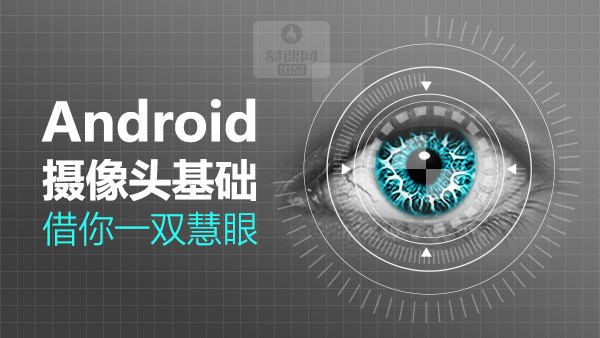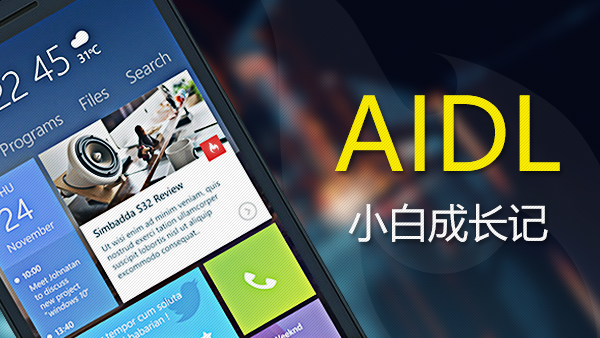目前的技术解决方案
Serializable:序列化对象为文件,并保存在文件里
SharedPreferences:Android官方提供的缓存文件,以XML形式存储
SQLite:官方数据库
greenDAO( Google Room):基于SQLite的轻量级ORM
Realm:第三方数据库
ObjectBox:第三方数据库
用过EventBus和GreenDao的都知道他GreenRobot,而 ObjectBox 就是GreenRobot 推出的移动端数据库架构,是基于NoSql的特性。
使用
1.引入
buildscript {
ext.objectboxVersion = '1.5.0'
repositories {
google()
jcenter()
}
dependencies {
classpath 'com.android.tools.build:gradle:3.1.2'
classpath "io.objectbox:objectbox-gradle-plugin:$objectboxVersion"
}
}
在 build.gradle 中dependencies 配置 在最后 添加 apply plugin: 'io.objectbox'dependencies { implementation fileTree(dir: 'libs', include: ['*.jar'])// implementation "io.objectbox:objectbox-gradle-plugin:1.5.0"
annotationProcessor "io.objectbox:objectbox-processor:1.5.0"
debugImplementation "io.objectbox:objectbox-android-objectbrowser:1.5.0"
releaseImplementation "io.objectbox:objectbox-android:1.5.0"
}
apply plugin: 'io.objectbox'注意:io.objectbox:objectbox-android-objectbrowser 后
出现这个错误:
More than one file was found with OS independent path 'lib/armeabi-v7a/libobjectbox.so'
1.是 apply plugin: 'io.objectbox' 没有在最后添加;
2.编码
1.初始化
官方推荐在 Application 中初始化 ObjectBox 的实例:
public class MyApplication extends Application { private static BoxStore mBoxStore; @Override
public void onCreate() { super.onCreate();// String inPath = getInnerSDCardPath() + "/db";// File file= new File(inPath);// if(!file.exists()){// file.mkdirs();// }// mBoxStore = MyObjectBox.builder().androidContext(this).directory(new File(inPath)).build();
mBoxStore = MyObjectBox.builder().androidContext(this).build(); if (BuildConfig.DEBUG) { // 添加调试
boolean start= new AndroidObjectBrowser(mBoxStore).start(this);
Log.e("====start=======",start+"");
}
Log.d("App===", "Using ObjectBox " + BoxStore.getVersion() + " (" + BoxStore.getVersionNative() + ")");
} public static BoxStore getBoxStore() { return mBoxStore;
} /**
* 获取内置SD卡路径
*
* @return
*/
public String getInnerSDCardPath() { return Environment.getExternalStorageDirectory().getPath();
}
}<font color=#8B0000 >注意:</font>
1. 记得在 AndroidManifest 引用自定义的 Application2. MyObjectBox 直接使用时找不到, 需要创建了对应的实体类后 (Ctrl+F9 )Rebuild Project 才会出现
2.建立user 实体
@Entitypublic class UserEntity { @Id
private long id; private String userName; private int age; public long getId() { return id;
} public void setId(long id) { this.id = id;
} public String getUserName() { return userName;
} public void setUserName(String userName) { this.userName = userName;
} public int getAge() { return age;
} public void setAge(int age) { this.age = age;
}
}3.获取
public class MainActivity extends AppCompatActivity { private Box<UserEntity> mBox; private Button mBtnPut; private Button mBtnGet; @Override
protected void onCreate(Bundle savedInstanceState) { super.onCreate(savedInstanceState);
setContentView(R.layout.activity_main);
Toolbar toolbar = (Toolbar) findViewById(R.id.toolbar);
setSupportActionBar(toolbar);
mBtnPut = findViewById(R.id.btn_put);
mBtnGet = findViewById(R.id.btn_get); // 获取
mBox = MyApplication.getBoxStore().boxFor(UserEntity.class);
mBtnPut.setOnClickListener(new View.OnClickListener() { @Override
public void onClick(View v) {
Long startTime = System.currentTimeMillis(); // 添加
for (int i = 0; i < 100; i++) {
UserEntity userEntity = new UserEntity();
userEntity.setAge(20);
userEntity.setUserName("jayqiu" + i);
mBox.put(userEntity);
}
Log.e("Put花费时间:", (System.currentTimeMillis() - startTime) + "");
}
}); // 获取数据
mBtnGet.setOnClickListener(new View.OnClickListener() { @Override
public void onClick(View v) {
Long startTime = System.currentTimeMillis();
List<UserEntity> userEntities = mBox.getAll();
Log.e("Get花费时间:", (System.currentTimeMillis() - startTime) + ""); if (userEntities != null && userEntities.size() > 0) { for (UserEntity user : userEntities) {
Log.e("UserID===",user.getId()+"");
}
}
}
});
}
}| 注解 | 说明 |
|---|---|
| @Entity | 这个对象需要持久化。 |
| @Id | 这个对象的主键。 |
| @Index | 这个对象中的索引。对经常大量进行查询的字段创建索引,会提高你的查询性能。 |
| @NameInDb | 有的时候数据库中的字段跟你的对象字段不匹配的时候,可以使用此注解。 |
| @Transient | 如果你有某个字段不想被持久化,可以使用此注解。 |
| @Relation | 做一对多,多对一的注解。 |
注意:
默认情况下,id是会被objectbox管理的,也就是自增id,如果你想手动管理id需要在注解的时候加上@Id(assignable = true)即可。当你在自己管理id的时候如果超过long的最大值,objectbox 会报错。id=0的表示此对象未被持久化,id的值不能为负数。id的数据类型只能是long.
。
运行后 默认的数据库位置在: /data/data/包名/files/objectbox/data.mdb 下
也可以在在初始化的时候定义位置:
BoxStore mBoxStore = MyObjectBox.builder().androidContext(this).directory(new File(inPath)).build();
3.调试
debugImplementation "io.objectbox:objectbox-android-objectbrowser:1.5.0"
在电脑终端执行一个 adb 命令: adb forward tcp:8090 tcp:8090
在电脑端 http://localhost:8090/index.html 就可以查看数据库
<font color=#8B0000 >注意:</font>
boolean start= new AndroidObjectBrowser(mBoxStore).start(this);
返回为false:
添加后 new AndroidObjectBrowser(mBoxStore).start(this);
返回为true 但是 浏览器访问不了 ?
1.网络权限添加
<uses-permission android:name="android.permission.INTERNET" />
2.对应
annotationProcessor "io.objectbox:objectbox-processor:1.5.0" debugImplementation "io.objectbox:objectbox-android-objectbrowser:1.5.0" releaseImplementation "io.objectbox:objectbox-android:1.5.0" // 使用releaseImplementation 不能使用implementation
升华
事务:
在前文中 直接的for 循环的去添加数据是不正确的,而且还是在主线程中,会使APP卡顿,或者crash;
通过源码分析看到几乎所有ObjectBox的操作都涉及事务。如果你调用put方法,会使用一个写事务。
Box.java public long put(T entity) {
Cursor<T> cursor = getWriter(); try { long key = cursor.put(entity);
commitWriter(cursor); return key;
} finally {
releaseWriter(cursor);
}
} void commitWriter(Cursor<T> cursor) { // NOP if TX is ongoing
if (activeTxCursor.get() == null) {
cursor.close();
cursor.getTx().commitAndClose();
}
}
Cursor.java public Transaction getTx() { return tx;
}但是对应更复杂的应用,通常值得学习事务的知识,以使您的应用程序更加的高效。
BoxStore类 提供以下方法来执行显式事务:
runInTx:在事务内运行runnable 。
runInReadTx:在只读事务中运行runnable 。与写入事务不同,多个读取事务可以同时运行。
runInTxAsync将给定的Runnable作为单独线程中的事务运行。一旦事务完成,给定的callback 被调用(回调可能为空)。
callInTx: 类似runInTx, 支持一个返回值和异常抛出。
eg:
MyApplication.getBoxStore().runInTx(new Runnable() { @Override
public void run() { for (int i = 0; i < 10000; i++) {
UserEntity userEntity = new UserEntity();
userEntity.setAge(20);
userEntity.setUserName("jayqiu" + i);
mBox.put(userEntity);
}
}
});
MyApplication.getBoxStore().runInTxAsync(new Runnable() { @Override
public void run() { for (int i = 0; i < 10000; i++) {
UserEntity userEntity = new UserEntity();
userEntity.setAge(20);
userEntity.setUserName("jayqiu" + i);
mBox.put(userEntity);
}
}
}, new TxCallback<Void>() { @Override
public void txFinished(@Nullable Void result, @Nullable Throwable error) {
Log.e("Put花费时间:", (System.currentTimeMillis() - startTime) + ""); if(error==null){
runOnUiThread(new Runnable() { @Override
public void run() {
Toast.makeText(MainActivity.this,"成功",Toast.LENGTH_SHORT).show();
}
});
}else {
runOnUiThread(new Runnable() { @Override
public void run() {
Toast.makeText(MainActivity.this,"失败",Toast.LENGTH_SHORT).show();
}
});
}
}
});Relations
我们在现实生活中一个用户可以对应多个的地址,比如家的地址,工作的地址,学校地址等
一对多
ToOne<>多对一
ToMany<>
@Backlinkpublic ToMany<> ;
实体 AddressEntity.java
@Entitypublic class AddressEntity { // 可以自定义ID 默认为自增
@Id(assignable = true) private long addId; public ToOne<UserEntity> user; private String address; public long getAddId() { return addId;
} public void setAddId(long addId) { this.addId = addId;
} public ToOne<UserEntity> getUser() { return user;
} public void setUser(ToOne<UserEntity> user) { this.user = user;
} public String getAddress() { return address;
} public void setAddress(String address) { this.address = address;
}
} mBtnrRlationsPut.setOnClickListener(new View.OnClickListener() { @Override
public void onClick(View v) {
UserEntity userEntity = new UserEntity();
userEntity.setUserName(System.currentTimeMillis() + "NAME");
userEntity.setAge(25);
AddressEntity addressEntity = new AddressEntity();
addressEntity.setAddress(System.currentTimeMillis()+"Lu");
addressEntity.getUser().setTarget(userEntity); long addId = MyApplication.getBoxStore().boxFor(AddressEntity.class).put(addressEntity);
Log.e("addId:", addId + "======");
}
});
mBtnrRlationsGut.setOnClickListener(new View.OnClickListener() { @Override
public void onClick(View v) {
List<AddressEntity> addList = MyApplication.getBoxStore().boxFor(AddressEntity.class).getAll();
Log.e("addList:", addList.size() + "======"); if(addList!=null&& addList.size()>0){
AddressEntity addressEntity= addList.get(0);
UserEntity userEntity= addressEntity.getUser().getTarget();
Log.e("userEntity:", userEntity.getUserName() + "======");
}
}
});id 只能是long的数据类型
错误: [ObjectBox] An @Id property has to be of type Long (com.**.objectbox.AddressEntity.addId)
更新
添加@Uid注解。
make project
编译, 会报错, 点击as右下 Gradle Console 会有类似报错信息:
注: [ObjectBox] Starting ObjectBox processor (debug: false)错误: [ObjectBox] UID operations for property "LocationEntity.locationTime": [Rename] apply the current UID using @Uid(3939342872662404404L) - [Change/reset] apply a new UID using @Uid(7349095691908173825L)
你的类名获取字段名称, 编译即可完成
把报错信息里后面一个新的数填写到注解里, 此处为: @Uid(3939342872662404404L)
响应的 在ObjectiveBox 都有非常详细的实例

 随时随地看视频
随时随地看视频




